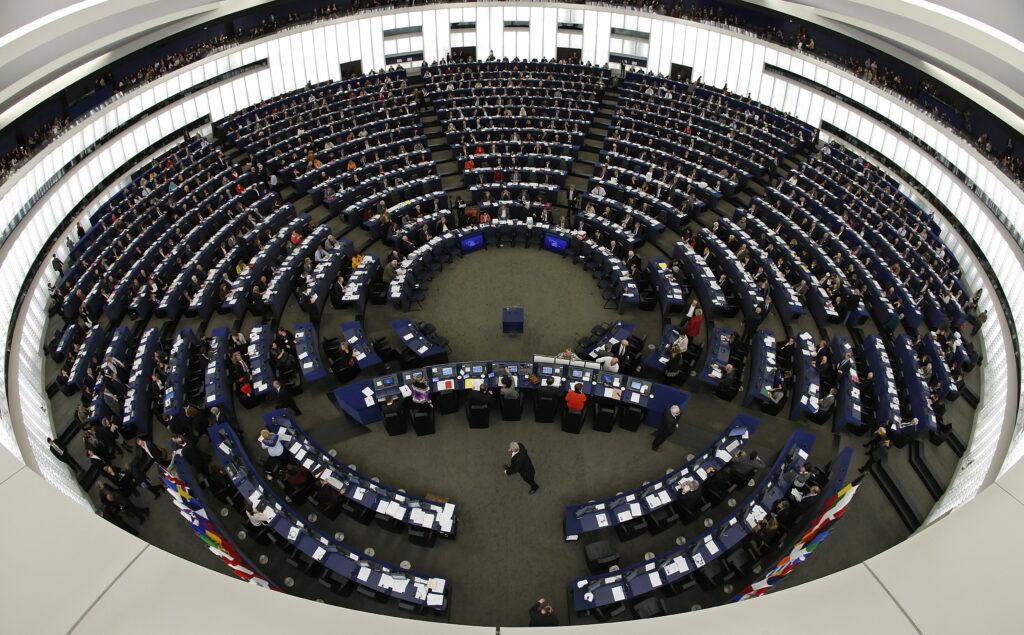Between June 6 and 9, the twenty-seven member states of the European Union (EU) will hold elections to determine the makeup of the European Parliament (one of the EU’s legislative bodies) for the next five years. These elections are set to be consequential: Critical issues—such as the EU’s positions on Ukraine and China, the future of the single market and Europe’s economy, and tech and green transition policies—are on the docket for the next Parliament’s term, with potentially wide-ranging implications for US-EU relations. To help US observers and decision makers navigate those implications, the Europe Center is breaking down the dynamics, issues, and parties at play.
Why do these elections matter?
The EU can be complicated and, sometimes, opaque. Just check out the EU’s explainers on the differences between the European Council from the Council of the European Union (not to be confused with the Council of Europe, of course). The European Parliament elections taking place in June are complicated, too.
These elections matter for two reasons. For one, they will be an important test of how the EU populace judges Europe’s overall trajectory, even if national political debates wind up dominating the ballots. Second, the outcome can influence the makeup of the next European Commission and ease or complicate the EU’s legislative agenda.
First, the Parliament, while institutionally weaker compared to the other EU institutions, still plays an important role in advancing the EU’s agenda. Regulations and legislation travel through the over-seven-hundred-member Parliament, and the Parliament works with the Commission and European Council to enact the EU’s rules. The Parliament also holds sway over the approval of the European Union’s budget—controlling where billions of euros go across the bloc and the world—and over the approval of trade agreements such as the now-moribund EU-China Comprehensive Agreement on Investment. The European Parliament has historically relied on an informal coalition of the center-right and center-left to form a consensus that supports greater powers for the EU legislature. A shift along the political spectrum may add more variation in how coalitions are formed to pass legislation.
This is all to say that the preferences of voters from Madrid to Milan and from Dublin to Dubrovnik will impact how the European Union takes forward critical policies on issues that have come to dominate the agenda, including, for example, the Russian invasion of Ukraine, democratic backsliding, climate change, agriculture, trade, migration, and relations with China.
The elections will also influence the makeup of the European Commission, the bloc’s powerful executive arm. The EU’s heads of state nominate the Commission president—via a system of horse trading—but the Parliament must approve the nomination and the makeup of the larger Commission leadership. This will matter for current Commission President Ursula von der Leyen’s shot at a second term. The Commission has grown in stature and importance in recent years, but it still requires buy-in from the Parliament.
These elections also matter for Washington. The Biden administration has treated the EU as a partner of first resort, and the administration is perhaps the most pro-EU in US history. Von der Leyen specifically has been one of US President Joe Biden’s closest partners. His administration has relied on a strong EU partner on issues including its approach to Russia, the green transition, and cooperation on technology and digital issues—notwithstanding bilateral irritants that have largely been contained. The Commission under a second von der Leyen term would continue to have general freedom to pursue coordination with Washington, but a new Parliament with its own priorities may indirectly shift how the Commission is able to deal with Washington.
—Jorn Fleck, senior director of the Atlantic Council’s Europe Center
Top questions and answers ahead of the vote
Which issues are at the top of voters’ minds in this election?
European Parliament elections have historically been driven by voters’ views of their current national government and voters often use them to, in a sense, punish those governments by voting for the opposition. Although there have been some moves to create a more pan-European election setting, most campaigns are focused on issues—such as migration—that current governments and the EU are believed to have handled poorly. As a result, the far-right, Euroskeptic parties are expected to do better than the pro-EU centrist parties (although it should be noted that post-Brexit, Euroskeptic parties are in favor of limiting the EU’s power, not leaving the EU).
– Frances Burwell, distinguished fellow at the Atlantic Council’s Europe Center
What does this election mean for Europe’s competitiveness, defense, and green transition?
Assuming that the next European Parliament moves to the right, the direct implications for the EU agenda are still relatively modest. There is unlikely to be any reversal of legislation passed to date on the Green Deal and Digital Agenda. But the caution about further legislation that emerged at the end of the current term among the member states of the Council is likely to continue and now will be reinforced by the Parliament. Whether this will deter the European Commission from initiating new legislation is not clear; this will depend on who becomes Commission president and their mandate. If it is again Ursula von der Leyen, she will probably have to promise both the Council and Parliament that her next term will focus on the implementation of recently passed legislation while lessening burdens on business and enhancing EU competitiveness. Thus, the biggest impact of the parliamentary election is likely to be its effect on the selection of the next Commission president and the constraints on the Commission’s mandate. This will lead to a more powerful Council, and—with the member states ascendant—more difficulties in reaching consensus on how to tackle the challenges of boosting Europe’s competitiveness, integrating the EU defense industry, and meeting the targets of the green transition.
—Frances Burwell, distinguished fellow at the Atlantic Council’s Europe Center
What are the expectations for the far right?
As Europeans head to the polls to elect the new Parliament, questions abound as to whether Europe’s far right will be able to gain enough seats (and work closely enough together) to influence Europe’s political future. As of now, polls show that right-wing parties in nine European countries—including Poland, Austria, and France—are set to finish first. And overall, the hard-right is expecting big enough gains—some predicting 165 members in the 720-person assembly—that it’s not out of the question for the Parliament to take a hard-right shift. But even the right isn’t united on its vision for Europe’s future, with Marine Le Pen’s National Rally party saying it will no longer sit in the same European Parliamentary group as Germany’s AfD party, after its lead candidate said that the SS, or Schutzstaffel (Nazi Germany’s main paramilitary force), weren’t “all criminals.” This prompted Le Pen’s hard-right Identity and Democracy European Parliament party group to expel the AfD, and for Le Pen to make an offer to Italian Prime Minister Giorgia Meloni’s European Conservatives and Reformists party to combine forces and form a new alliance within the Parliament. If successful, this “supergroup” could fundamentally reshape the parliament and Europe’s policies on important issues like immigration, climate and the green transition, and support for Ukraine. This is something for both sides of the Atlantic to watch closely.
–Rachel Rizzo, nonresident senior fellow at the Atlantic Council’s Europe Center
What impacts could a potential right coalition have?
The potential right coalition in the European Parliament matters first and foremost for the selection of the new European Commission president. The presidential nominee, put forward by the leaders of the EU’s twenty-seven member states, will need a simple majority of 361 (one more than half of the 720-member Parliament) to be approved. Because no political group will get close to that figure on their own, negotiations and coalition-building are required.
In 2019, Ursula von der Leyen squeezed by with a margin of nine votes with the support of her group, the center-right European People’s Party (EPP), and support from the center-left Progressive Alliance of Socialists and Democrats (S&D) and the centrist Renew Europe group. Assuming the next European Commission nominee will be von der Leyen—not a given but it is a good guess—the vote looks to be just as narrow, or even more so. The EPP and S&D will again receive the most votes, but they will not be enough together to push through a nominee. Renew is trending down, and the right-wing Euroskeptics are ascendent. This leaves the presidential nominee with a dilemma: where can he or she get enough votes, and what will he or she have to trade to get them? With the expected rise of the right and bluster that some in the EPP won’t support her, there could be a scenario in which von der Leyen looks to the right to secure approval.
Should she look right, von der Leyen would have to make deals to secure support from the hard-right, Euroskeptic European Conservatives and Reformists Party (which includes Italian Prime Minister Giorgia Meloni’s Brothers of Italy) to secure her nomination. Doing so would mean shaping the Commission priorities to be more palatable to the hard-right, though von der Leyen has stressed any partner must be “pro-European, pro-Ukraine, and pro-rule-of-law.” This is highly controversial and not guaranteed to happen. Beyond the approval of a president, a right coalition (although all coalitions in the European Parliament are informal) would mark a shift in the European Parliament, which has historically relied on a coalition between the centrist forces led by EPP and S&D. This shift will mean consensus-building on things like the green transition, migration, and other hot-button issues may be more uncertain.
–James Batchik, associate director at the Atlantic Council’s Europe Center
How much can the various right-wing groups work together?
It remains to be seen how feasible it will be for the two right-of-center groups to coalesce behind a common agenda and political candidates. The latest developments from Marine Le Pen, from the dismissal of Germany’s AfD to the rapprochement with the European Conservatives and Reformists Party, may reveal more about France’s domestic politics than fundamental shifts at the European level. Le Pen is on a crusade to move the general perception of her party closer to a traditionally conservative group ahead of the 2027 French presidential elections. If this reads like déjà vu, it’s because this strategy arguably resembles Giorgia Meloni’s approach leading up to her swift ascent to Italy’s premiership in 2022. And yet, tensions persist between the two groups, particularly among their leaders. It remains unlikely that Meloni will open up to a formal, enlarged single group. If for no other reason, this could be explained by the simple fact that her national party’s representation in the European Parliament will be smaller than Le Pen’s,
Yet the prospect of a right-leaning supergroup calling the shots in the European Parliament is the topic of much talk in Brussels. And for now, that may be sufficient. Von der Leyen, still believed to be the top candidate for a second term at the helm of the Commission, has shown openness to working with right-wing coalitions. This may ultimately prove to be political posturing. Nevertheless, the fact that this alternative to the traditional coalition between the European People’s Party and the Progressive Alliance of Socialists and Democrats is on the table remains a significant development. Meloni has long courted the Commission’s president, presumably to secure a strong role for her government in selecting the EU’s next leaders, if not to become a formal member of the majority coalition. Ultimately, the Meloni-Le Pen camp has the potential to become the defining alliance of the coming European political decade—or a source of tension between two leaders expected to remain at the helm of European politics for years to come.
–Nicholas O’Connell, deputy director for public sector partnerships at the Atlantic Council
What is going on with Renew Europe?
Voters typically use the European Parliament elections as a way to register discontent with the party in power nationally. So it is no surprise that French President Emmanuel Macron’s party is expected to do poorly. It is also not a huge surprise that Marine Le Pen’s National Rally is expected to come first, given that it has been the largest French party in the European Parliament in two election cycles since 2014. Macron’s European Parliament grouping of French parties, known as Renaissance at the time but since renamed to L’Europe Ensemble, tied with the National Rally in 2019, but it was helped by the fact that it is an alliance of Macron’s En Marche party and others. However, the expected poor performance for Renaissance will have a big impact on the Renew Europe group of liberals in the European Parliament, predicted to fall from 102 seats to 82. That could shrink even further due to a rift between En Marche members of the European Parliament and their Dutch counterparts from Mark Rutte’s People’s Party for Freedom and Democracy (VVD). Renew head Valerie Hayer says that they should be kicked out of the group for allying with the Geert Wilders’ far-right Party for Freedom in the Dutch coalition government, since Renew was one of the groups that signed a pledge not to form such coalitions at the European or national level. The VVD might find a more natural home in the center-right European People’s Party Group, which didn’t sign the pledge. But given Renew’s dwindling numbers, Hayer is playing with fire because they risk not having enough countries and members to constitute a group, if other right-of-center liberal parties such as Germany’s Free Democratic Party follow VVD out the door. The liberal group in parliament, formerly known as the Alliance of Liberals and Democrats for Europe before Macron joined in 2019, has always had uncomfortable divisions between its right-leaning and left-leaning members.
–Dave Keating, nonresident senior fellow with the Atlantic Council’s Europe Center
What does the decline of the German Greens mean at the European level?
Within the structure of the Traffic Light Coalition (the current German government formed from the Social Democratic Party, Free Democratic Party, and Alliance 90/The Greens) leader of the Greens and German Vice Chancellor Robert Habeck often takes a mediating, compromise-oriented approach. This has successfully contributed to holding together what seems to be a frequently bickering, fractious government. But his successes as economy and climate minister are another matter. And although Habeck and fellow Greens leader and Foreign Minister Annalena Baerbock shared top spots as Germany’s most popular politicians just two years ago, they have stumbled in the wake of last year’s budget crisis and ensuing austerity measures, which have withered public appetite for climate compromises to an all-time low.
It seems common sense to assert that the floundering of the German Greens will have an adverse effect on climate goals not only in Germany but across the EU. If Green initiatives can’t find solid footing in what is still Europe’s largest economy, it is difficult to imagine how they could gain traction on a larger European scale. Given the unique nature of climate change as an issue, in that it requires unanimous collaboration and economic commitment, the horizon for meaningfully addressing climate goals appears increasingly distant.
–Carol Schaeffer, nonresident senior fellow with the Atlantic Council’s Europe Center
What is the electoral process?
The European Parliament is the bloc’s only directly elected democratic body, connecting EU citizens to the decisions made in Brussels. Meanwhile, the European Council and Council of the European Union are made up of EU member heads of state and ministers, respectively, and the college of European Commissioners is chosen by consent from the Council and Parliament.
Elections for the European Parliament are held every five years and are run at the national level. Countries are granted seats broadly based on population. In its current makeup, for example, Germany has the largest number of members, with ninety-six. Cyprus, with a much smaller population, has six members. Voting rules and procedures also differ in each country. The minimum voting age, for example, differs across the continent—sixteen in countries like Austria, Belgium, and Germany and eighteen in others. Voting systems—proportional, first-past-the-post, or others—also vary across the twenty-seven countries.
Voters pick candidates from national parties to be members of the European Parliament, and domestic politics play a massive role in the elections. In effect there are twenty-seven different elections across Europe over the course of the three days—each with their own flavor and core issues that combine European and national priorities. National parties across the bloc organize themselves into pan-European party groups based on their alignment with their respective European party family—such as the center-right European People’s Party or the center-left Party of European Socialists. The national parties affiliated with each European party will generally campaign with a coherent message across Europe. The group that receives the largest share of members is considered the winner of the elections. Once elected, members sit in the European Parliament in European political groups, which correspond to European parties, and these groups form the core building blocks of European Parliament voting blocs.
What is the connection between the European Parliament and the European Commission?
The European Parliament is a unique legislative body. Unlike national legislatures, the Parliament does not have the right of legislative initiative, meaning it cannot introduce legislation—that is a power reserved by the European Commission—and is otherwise a co-legislator with the Council of the European Union on most areas of EU policy. The Parliament, however, does play a role in shaping the Commission.
The president of the Commission is nominated by the European Council, the bloc’s heads of state, following the elections. The Commission president must then be approved by a majority in the Parliament. The Parliament also approves the appointment of commissioners—equivalent to US cabinet secretaries—following a series of hearings.
Since 2014, the European Commission president has been chosen through a Spitzenkandidat, or “lead candidate,” system in which each party group picks one lead candidate for the elections. The lead candidate for the largest party in the Parliament elections typically is put forward as the Commission president. But this is not always the case in practice. In the most recent elections, von der Leyen was a last-minute and unexpected pick for president even though she did not run as a candidate for the presidency.
What priorities are driving voters to the polls?
Click on a square on the map below to read a brief overview of each election.
Which are the key parties?
European People’s Party (EPP)
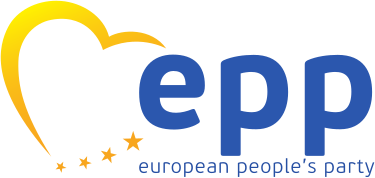 Composition: Center-right parties such as Christian-democratic, liberal-conservative, and conservative parties
Composition: Center-right parties such as Christian-democratic, liberal-conservative, and conservative parties
European Parliament party group: European People’s Party Group
2019 results: 182 seats
2024 elections projection: Slight gain, from 182 to 186 seats
Group leader: Manfred Weber (Christian Social Union in Bavaria, Germany)
Lead candidate: Ursula von der Leyen (Christian Democratic Union, Germany)
Priorities: The EPP prioritizes making the euro more stable—through what the party calls sustainable economic policies—and emphasizes the importance of free trade in creating jobs, reducing poverty, and strengthening relations with other countries. It aims to help small and medium-sized enterprises thrive, especially because of the role these businesses have in fostering innovation and developing the European workforce. More broadly, the EPP takes a strong stance on security, arguing for a defense commissioner position, a European Security Council, and “Single Market for Defense.” The party calls for a migration policy that makes clear the distinction between asylum seekers and irregular migrants and that puts in place greater external border controls; the EPP also backs EU support for national antiterrorism efforts. On climate, the EPP also supports efforts to reduce greenhouse gas emissions and secure the bloc’s energy supply.
Party of European Socialists (PES)
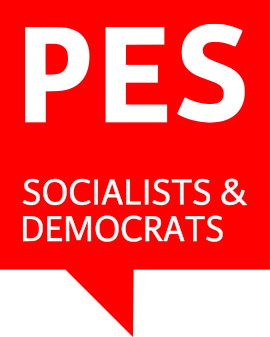 Composition: Center-left and social-democratic parties
Composition: Center-left and social-democratic parties
European Parliament party group: Progressive Alliance of Socialists and Democrats (S&D) Group
2019 results: 154 seats
2024 elections projection: Substantial loss, from 154 to 135 seats
Group leader: Iratxe García Pérez (Spanish Socialist Workers’ Party, Spain)
Lead candidate: Nicolas Schmit (Socialist Workers’ Party, Luxembourg)
Priorities: PES prioritizes social and labor rights by advocating for a living wage, affordable housing, and equal pay, as well as broader gender-equality initiatives such as efforts to counter gender-based harassment and improve women’s healthcare. After strongly backing efforts to fight the COVID-19 pandemic and support Ukraine following Russia’s illegal invasion, PES advances work on improving European resilience and self-sufficiency. With an eye toward future challenges, the group views climate change as a complex issue requiring a just transition and robust sustainability efforts and seeks to mitigate the social impacts of rapidly evolving digital technology.
European Conservatives and Reformists (ECR)
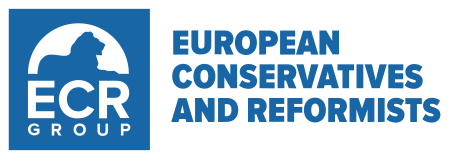 Composition: Center-right and far-right parties
Composition: Center-right and far-right parties
European Parliament party group: European Conservatives and Reformists Group
2019 results: Sixty-two seats
2024 elections projection: Slight gain, from 62 to 73 seats
Group Leader: Ryszard Legutko (Law and Justice Party, Poland) and Nicola Procaccini (Brothers of Italy, Italy)
Lead candidate: Refusing to announce a lead candidate
Priorities: ECR has proclaimed itself a “Eurorealist” group and argues for a decentralized EU that relies more on national governments and focuses on transnational issues such as migration, terrorism, and European competitiveness. The group argues for countering the EU’s centralization and reforming the EU as a “community of nations cooperating in shared confederal institutions.” Furthermore, ECR wants to cut spending it considers wasteful by EU institutions and promote efficiency by protecting whistleblowers. On migration, ECR believes the EU needs to support member states in securing the external border and work with other countries to prevent migration.
Alliance of Liberals and Democrats for Europe Party (ALDE)
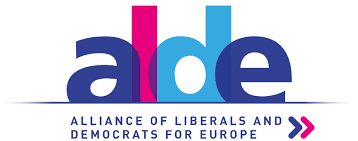 Composition: Center-left and center-right political parties
Composition: Center-left and center-right political parties
European Parliament party group: Renew Europe (Renew) Group
ALDE and associated parties in the Renew group are running under a common campaign platform for the 2024 elections. Subsequent content therefore represents the group instead of the party position.
2019 results: 108 seats
2024 elections projection: Significant loss, from 108 to 79 seats
Group Leader: Valérie Hayer (Renaissance, France)
Renew Lead candidate: Valérie Hayer (Renaissance, France)
Priorities: Renew is a pro-European group that promotes the integration of all European countries and believes in European solutions to challenges ranging from climate change to security and defense. Economically, Renew believes the single market is the path toward bolstering competitiveness and funding broader social initiatives such as health and education. The group aims to protect democracy, ensuring rule of law is respected, and countering populism and nationalism.
European Green Party
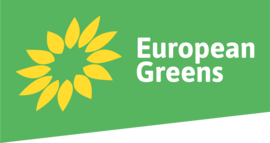 Composition: Left-leaning green and regionalist political parties
Composition: Left-leaning green and regionalist political parties
European Parliament party group: Greens-European Free Alliance (Greens-EFA)
2019 results: Seventy-four seats
2024 elections outcome: Significant loss, from 74 to 53 seats
Group leaders: Terry Reintke (Alliance 90/The Greens, Germany) and Philippe Lamberts (Ecolo, Belgium)
Lead candidate: Terry Reintke (Alliance 90/The Greens, Germany) and Bas Eickhout (GreenLeft, Netherlands)
Priorities: As an environmentally focused, pro-European group, the Greens argue for stronger climate regulations to meet ambitious emission reductions targets, for affordable green energy, and for greater environmental stewardship. More broadly, the Greens call on the EU to protect civil society, push for the installation of a minimum tax across the EU, and promote feminist policies and equal rights. The EFA subgroup focuses on self-determination and seeks to represent stateless nations, emerging states, and minority regions.
Identity and Democracy (ID)
 Composition: Far-right nationalist and populist parties
Composition: Far-right nationalist and populist parties
European Parliament party group: Identity and Democracy Group
2019 results: Seventy-three seats
2024 elections outcome: Slight loss, from 73 to 58 seats (Note: this includes the loss of the German AfD)
Leader: Marco Zanni (League, Italy)
Lead candidate: Anders Vistisen (Danish People’s Party, Denmark) was named a token lead candidate to participate in the spitzenkandidat debate
Priorities: ID is a Euroskeptic group that argues for national governments having greater control over policy and disapproves of the EU imposing taxes or budgets. They also say that they want to preserve European national identities and are strongly opposed to immigration or Turkey joining the EU.
Party of the European Left
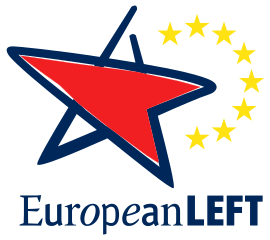 Composition: Left parties including democratic socialist, left-wing populist, and communist parties
Composition: Left parties including democratic socialist, left-wing populist, and communist parties
European Parliament party group: The Left in the European Parliament (GUE/NGL)
2019 results: Forty-one seats
2024 elections outcome: Slight loss, from 41 to 36 seats
Leader: Manon Aubry (La France Insoumise, France) and Martin Schirdewan (The Left, Germany)
Lead candidate: Walter Baier (Communist Party, Austria)
Priorities: The Left is a pro-Europe group that seeks to use the EU to secure equal rights, counter economic inequality by wealth redistribution, and commit Europe to sustainable practices to tackle climate change and uphold animal rights. The group wants the EU to promote human rights globally and build its foreign policy based on peace. More broadly, the Left believes in “dignity, equality, and solidarity” in reference to civil liberties and therefore works towards reducing sexism, homophobia, racism, and xenophobia.
While the vast majority of Members of the European Parliament associate with one of these groups, a small handful do not belong to any group. These MEPs are called “Non-Inscrits.”
What is the makeup of the new European Parliament?
*Other includes newly elected MEPs that are not yet affiliated with any party group.
For more content on elections taking place around Europe in 2024, check out our Transatlantic Horizons project.
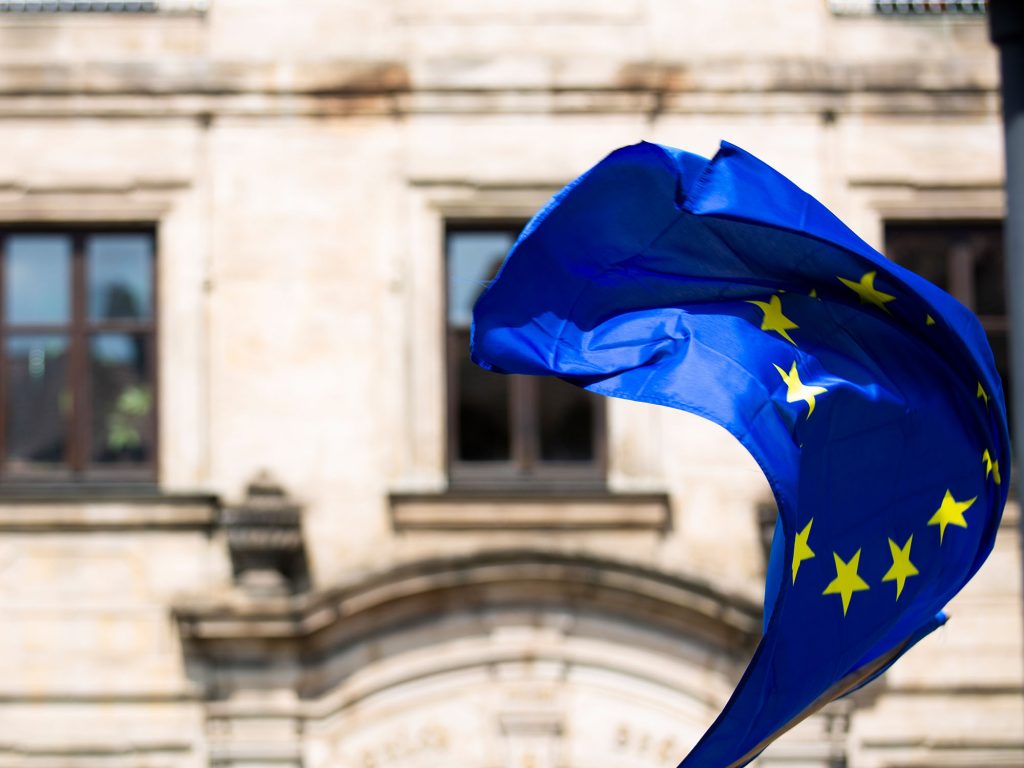
Europe Center
The Europe Center promotes leadership, strategies and analysis to ensure a strong, ambitious and forward-looking transatlantic relationship.
Image: Members of the European Parliament take part in a voting session at the European Parliament in Strasbourg, November 20, 2013. Picture taken with a fisheye lens. REUTERS/Vincent Kessler (FRANCE - Tags: POLITICS TPX IMAGES OF THE DAY)
